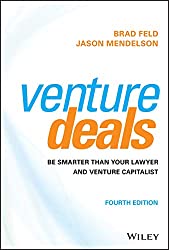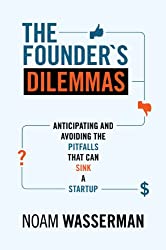
Rating: 7.7/10.
Book Review: Venture Deals: Be Smarter Than Your Lawyer and Venture Capitalist by Brad Feld and Jason Mendelson
Book written by two venture capitalist investors, meant to guide entrepreneurs through the VC funding process. After the founders have decided how much money they want to raise, gives a presentation, and the VC is interested, the next step is to negotiate a term sheet. This is a contract that spells out all the economic and control conditions of funding, how the equity is split up in various exit scenarios, etc.
The economic terms of the term sheet determine financial outcomes. Common terms to know are: pre-money vs post-money valuation, liquidation preference (shares that get paid out first during exit), participation (investor gets preference and also gets to convert to common stock), vesting mechanisms (incentives for employees and founders to stay). The control terms determine who gets to execute certain actions, like sell the company. Drag-along and conversion mechanisms can let VC force the founders to sell. Then there’s a bunch of terms that the authors classified as unimportant, either because they don’t matter much, or is rarely negotiated.
Several chapters talk about things relevant to later stages of a company: how venture debt works (can take debt after initial funding), letters of intent (similar to term sheet but for when a company intends to acquire you), how to hire investment banks (good for getting a better deal in an acquisition). One of the more interesting chapters talks about how VC funds work: they have to raise funds from investors and have a lifespan of about 10 years so they want to invest as much of it as early as possible. They can only invest in the first 5 years so there can be problems if the VC cannot raise money to start a new fund.
Overall, I found that this book over-emphasizes the precise but trivial accounting and legal details, and completely ignores the business aspects: what business models are attractive to fund, what metrics do VCs look for at each stage of a startup, etc. The style is similar to Consider Your Options (but for founders instead of startup employees). The details were difficult to follow since I’ve never looked at a term sheet before. To be fair, the authors did a good job of translating legalese to plain English, and gave their opinions on which legal terms are actually important and which ones are a waste of lawyers’ time to argue over.



